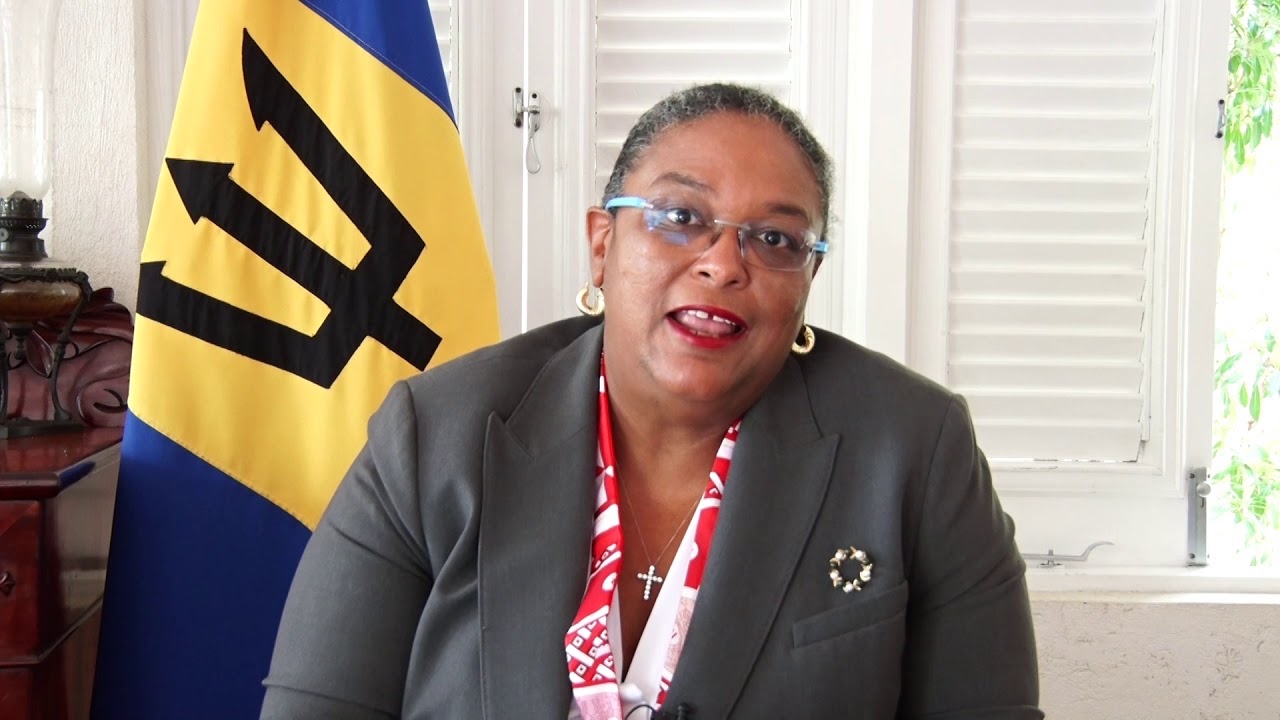Prime Minister Mia Mottley Monday reiterated a call for a restructuring of the global financial system and urged the Pan American health organisation (PAHO) to continue its efforts to assist small developing countries like those in the Caribbean deal with the impact of the coronavirus (COVID-19) pandemic that has killed 998,000 people and infected 33.1 million worldwide since Last December.
Addressing the PAHO’s virtual 58th Directing Council meeting, Mottley said that despite the Caribbean needed the restructuring of the world financial system if it is to meet the future socio-economic demands of its population.
“We welcome the effect of COVID-19 in bringing a growing realisation to the world, the global financial system must be restructured and indeed revolutionised and democratised. Only in this way can vulnerable sub-regions like our own Caribbean Community (CARICOM) escape the prison of the false capital base middle income categorisation which is blocking us from receiving much needed financial aid, while penalising our efforts at creative sustainable national economies.
“We refrain from settling on more appropriate proxies like a vulnerability index that will better measure our capacity to absorb shocks like this and our capacity to be able to respond to them.
“Equally, we continue to use raw and in precise proxies to determine access to so many public goods, including in this instance vaccines and therapeutics,” Mottley told the health ministers and other senior officials from the Americas.
Mottley said with the Caribbean being among the most dependent regions of the world “and whose economies have come to a screeching halt with zero revenue, we have to find a way to jump start our economies.
“But it must be done in such a way so as to ensure the safety of our workers,” she said, adding “it is for this reason that I have been advocating that the workers in the tourism and travel sector be given priority access to vaccinations and therapeutics when they are fully available.
“This will allow thousands of our workers to get back to work safely in this hemisphere and to get our almost dormant economies awake again. I look forward to your cooperation in this institution in helping us to make this call for so many of our countries that are literally affected by the absence of travel and tourism activities”.
She said that one of the benefits of COVID-19) has been the improvement in the environment as a result of the lockdowns across the world, but “regrettably with the restart we are almost back to where we were before the pandemic struck us.
“This kind of pause occasioned by COVID-19 was and is needed for us to take stock of our climate agendas and to press on with the more ambitious nationally determined contributions. WE say so on the frontline of this crisis, we say so on the frontline of the hurricane season. But the hurricane season is just the heart attacks of the climate crisis, no one talks sufficiently about the chronic NCDs (non-communicable diseases) in the climate crisis,” she said, making references also to the droughts, floods and the sargassum weed “that is bringing havoc to our coastal economies”.
The two day meeting will focus mainly on countries’ response to the COVID-19 pandemic and the impact it has had on national health systems and services. The implementation of the International Health Regulations (IHR) will also be discussed.
Mottley said that for the first time, CARICOM has been given access to the African medical supplies platform through the intervention of the Director General of the World Health Organisation (WHO), Dr Tedros Adhanom Ghebreyesus and the director of the African Union.
She said that the WHO official is also “behind bringing the diaspora in CARICOM into closer collaboration with the continent of many of our ancestors…and this bridge will go way beyond this pandemic and will go way beyond the issue of health care for this is a historic bridge that we have built back to the African continent”.
Mottley said CARICOM’s inclusion in the Access to COVID-19 Tools Accelerator (COVAX) will be beneficial to the region, adding “we are confident that this arrangement will ensure equity and access to treatment and to vaccines, for without this public good we shall truly be left behind”.
She also praised the Dominican-born PAHO Director, Dr. Carissa Etienne, whom she said played a pivotal role in getting the region to fully to grip with the pandemic.
The delegates in the Directing Council will also discuss the region’s health achievements from 2014 to 2019, as a review of PAHO’s strategic plan for those years; PAHO finances and programmatic priorities, among other topics. CMC




